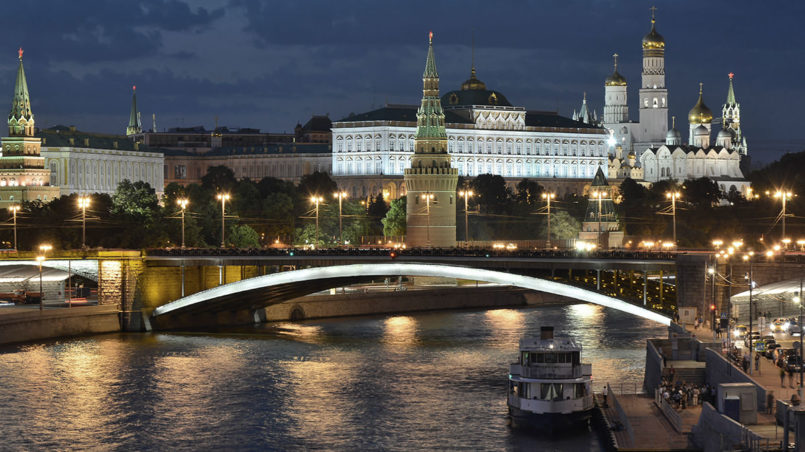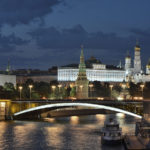Russian Election – Prof. Gerhard Mangott: “The Winner is Certain”

Today, on March 18, 2018, Russia votes for its new (and presumably old) President. A few days ago I had the opportunity to interview the Russia expert, Prof. Gerhard Mangott, well-known from radio and television, on the election and the situation in Russia in general:
What position does the office of President occupy within the structure of the state, what powers does it have, how is it distinguished from the office of Prime Minister?
The Russian Constitution is the result of a power struggle that Boris Yeltsin won in 1993. Yeltsin had a Constitution written that assigns the President the central position of power: he is the dominant element in the executive branch. He nominates the chairman of the government, who must be confirmed by the Duma, but if the Duma does not follow the president’s recommendation, he can dissolve it. He can also dismiss the government or any individual minister and repeal all government regulations. Certain ministries do not report directly to the chairman of the government, but to the President. These include the Ministry of Foreign Affairs, the Ministry of Defence, the Ministry of the Interior and all secret services.
He is, as such, more powerful than the American President, who has to get Congressional approval for his plans?
Russia is a semi-presidential system in which presidents have significantly more power to act than in presidential systems. In the latter, Parliament has a strong counterweight to the President.
What are the requirements for a candidate to run in the presidential election?
He/she must be a Russian citizen, at least 35 years old and not be excluded from the right to stand for election by a criminal conviction. The latter condition cost Alexei Nawalny, one of Russia’s best-known opposition politicians, his candidacy.
What are the peculiarities of the Russian electoral system and the voting?
Glass ballot boxes have been used since the fraudulent elections to the State Duma in 2011. This is to prevent numerous voting envelopes with a cross for the President being in the urn even before the vote. It will also be possible to observe whether the carousel voting will be carried out again: pro-Putin voters were driven from polling station to polling station on buses to cast their votes several times. This time, the election observers will document the election with mobile phone photos in order to avoid fraud to a large extent.
The presidential elections are held every six years. The extension of the legislative period was decided in 2008 – it had previously been four years. What was the argumentative background to this extension from the Russian point of view and how do you assess this?
Six years is a long time, but the term of office of the French President, for example, was seven years until the beginning of the 2000s. What is special about Russia is that a President may only hold office twice in a row (as in the USA), but he may take office again after an interruption of a legislative period. This also applies to Vladimir Putin, who was elected in 2000 and 2004, and then – after four years Medvedev, in which Putin acted as chairman of the government – again in 2012 and now in 2018. As Putin will be seventy-two years old in 2024, it is questionable whether he will remain in politics or not rather appoint a suitable successor. If the latter is the case, it will be exciting to see whether he succeeds in three or four years’ time, or whether the succession struggles in his government team will become so strong that the succession rule will slip out of his hands.
How can one imagine the election campaign, which media play an essential role, which forms and paths of communication are relevant? Do social media have a similarly growing (because critical) role as in the West?
Facebook and its Russian clones, as well as numerous blog pages, have become important alternative sources of information for all those who no longer trust the state media. The Internet in Russia is largely free, even if there are legal possibilities to block individual pages. The opposition, in particular, uses social media. The person, Nawalny would not have been possible without it.
The official election campaign takes place in the state media. Every candidate has free airtime. However, it cannot keep up with Putin’s numerous prominent appearances in all news broadcasts. There were TV discussions between the individual candidates, but these were relatively devoid of content. Putin did not participate in these broadcasts.
What are the most important topics of the current election campaign?
Social issues are dominant: the question of pensions, the difficult situation in the health care system with poorly equipped hospitals and a lack of medication, and often only (better) medical treatment can be obtained through bribery. The education system is also chronically underfinanced. Corruption was and is an issue, as it plays an important role in the daily life of all Russians. And contrary to Putin’s promises at the last elections, it has grown since then.
Alexei Nawalny: he is often accused by the Russian authorities of working with the West to achieve a turnaround in Russia. What do you think?
In this context, the Russian government likes to speak of the fifth column (note: this term is also used by Western media in the reverse case), which serves the interests of the West. In the Nawalny case, there is no evidence to prove this. However, he is a controversial person with a right-wing extremist past and clear racist tendencies. At the same time, however, he always acted as a fighter against corruption in the state administration and in the courts, showing a great deal of courage to uncover corruption. His views on the presidency are similarly authoritarian as those of Putin. The programme he would have presented for this election is a mixture of left-wing populism and economic liberal ideas, not always coherent and very vague in terms of funding. He would not have had any election chances, but he could have curtailed or prevented Putin’s landslide victory, which is now foreseeable and can be regarded as respectable. For Putin, it is not only important that he is elected by a large majority, but also that this result is based on a high turnout (above 65% would be a success for him) in order to end the internal Russian discussion about the legitimacy of election results with too little turnout.
Do you see a candidate who will have even the slightest chance against Putin on Sunday?
No. According to the latest survey of the state survey institute (the only independent institute has the status of a foreign agent, as well as many NGOs, and is therefore not allowed to publish surveys), Vladimir Putin will get 69% of the votes, while the corresponding figure for his closest candidate from the Communist Party, Pawel Grudinin, is about 7%. The liberal candidates are in the low single-digit percentage range, which is also due to the fact that most Russians associate the term liberal with the catastrophic period of the 1990s.
Where does Vladimir Putin have his strongholds? Is there also the division between the city (progressive) and country (conservative) in Russia, as we have seen in many election campaigns in recent years (USA, Austria, Turkey)?
The larger the city, the less popular Putin is. However, even there (Moscow, St. Petersburg) he has about 50%. The rural population, workers in the arms industry, people whose salaries are paid directly from the state budget (teachers, doctors) vote for Putin. They belong to the conservative part of the Russian population. Some elect him because he helped Russia back to great power, but most voters expect stability and continuity from him. Another motive is also the simple lack of alternatives: no other candidate has a chance of winning the election.
The economic development under Vladimir Putin has been quite positive. Is that why he is so popular with the people?
Here one must differentiate between different phases. The development in the golden years of the Russian economy (1999-2008), with average annual growth rates of 6.9% and average real wage increases of 16.6%, was mainly due to a major tax reform, but also to the sharp rise in raw material prices – very important for a country that is heavily dependent on raw material exports. In 2008/9, the global economic crisis hit Russia particularly hard, as Putin failed to diversify the Russian economy and make it less dependent on commodity exports. After a slight recovery from 2010-2015, there was another recession in 2016 with a decline in real wages. Economic growth is also forecast to remain low for a developing economy in the coming years. The main reasons for this are the lack of structural reforms (there are numerous official hurdles for small and medium-sized enterprises) and the still high level of corruption.
Have the sanctions had a significant impact on economic development in recent years?
In 2015, the sanctions had a growth dampening effect of 0.5-0.8% of the GDP, so they were not the decisive factor for the 2016 recession, and the country was much more affected by falling commodity prices and the dependence on them.
Thank you very much for your time and the detailed answers to our questions.
–
Gerhard Mangott is a political scientist and professor of international relations at the University of Innsbruck with a focus on Eastern Europe and Russia.
Translation German-English: Anna Dichen
Credits
| Image | Title | Author | License |
|---|---|---|---|
 |
Russlandwahl 2018 – Mangott- | Andrey Korzun | CC BY SA 4.0 |
